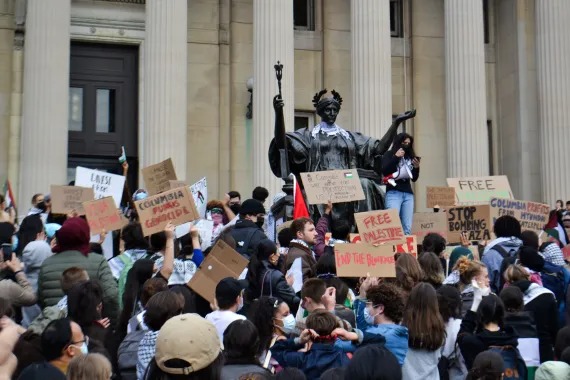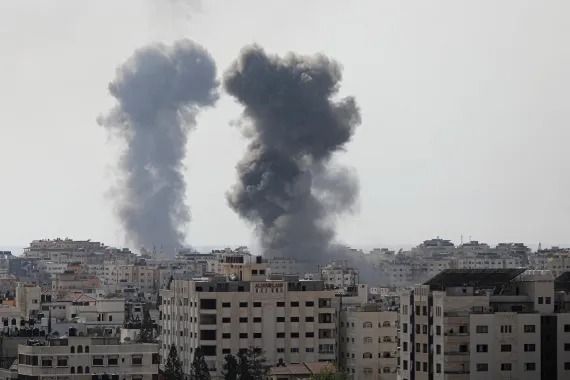In a climate of increasing social and political polarization, pro-Palestinian students in the United States find themselves at a crossroads, fearing the potential backlash to their careers as they express their views on the Israel-Hamas conflict. The threat of losing future job opportunities looms large, prompting many to reconsider their involvement in activism. Mohammed, a Cornell University student, shared his concerns, reflecting the broader unease that has enveloped protesters across the nation.
Rising Concerns in the Wake of Israel-Hamas Conflict
The Israel-Hamas conflict, which began earlier this year, has had far-reaching consequences, not only on the geopolitical stage but also within the hearts and minds of American university students. Mohammed, who aspires to be a researcher, exemplifies the caution many students now exercise in participating in pro-Palestinian demonstrations. Transitioning to the protests themselves, they advise their peers to take extra precautions, including wearing face masks, attending with friends, and maintaining vigilance.
Beyond immediate campus tensions, these students are grappling with a deeper concern – the potential impact of their activism on their future career prospects. Expressing solidarity with the Palestinian cause has led to a growing fear of professional repercussions, casting a shadow over their aspirations.
High-Profile Backlash Shakes Students and Professionals
The fears of these students aren’t unfounded. Recent high-profile cases illustrate how expressing pro-Palestinian views can lead to adverse consequences. On October 22, a prominent Hollywood agent resigned from the board of Creative Artists Agency (CAA) following public backlash after likening Israeli actions to “genocide” on social media. On October 26, the editor of Artforum magazine was fired for publishing an open letter calling for an end to civilian harm.
However, it’s the students who seem to bear the brunt of this backlash, as they often lack experience and professional networks to shield them from the ramifications of their activism. The atmosphere of fear and uncertainty has stifled their voices, leading many to retreat from public advocacy.
Isabella, a Harvard University PhD student, emphasized the dilemma students face as they weigh their advocacy for Palestine against their professional ambitions. Her campus made international headlines when student groups blamed Israel for the escalating violence, sparking a wave of controversy and demands from Wall Street executives to identify the students involved. Some students were doxxed, a practice used to intimidate individuals by revealing their personal information. Websites like Canary Mission and Accuracy In Media continue to expose pro-Palestinian students, further heightening the pressure.
Legal Gray Area: Workplace Climate and At-Will Employment
In this climate of apprehension, Radhika Sainath, a senior attorney at Palestine Legal, reported an increasing number of complaints from college students who claim to be facing discrimination on campus and by potential employers. She described the harassment faced by Palestinian students, including death threats and threats to their careers.
While federal and state laws prohibit employment discrimination based on factors like race, religion, and national origin, the challenge lies in the concept of “at-will employment.” Private companies often have the discretion to terminate or withdraw job offers, making it difficult to prove discrimination. The notion of “blacklisting” students from employment opportunities falls into this legal gray area.
As Baher Azmy, a lawyer at the Center for Constitutional Rights, noted, the current climate bears resemblance to the period leading up to the Iraq War, exacerbated by the prevalence of social media. Employers, in the absence of stringent legal protections, can make hiring decisions based on an individual’s online presence.
Amidst these challenges, students like Mohammed remain determined to speak out, even if it means jeopardizing their future career prospects. They refuse to be silenced in the face of potential repercussions, resolute in their belief in the importance of raising their voices against the ongoing conflict.
















